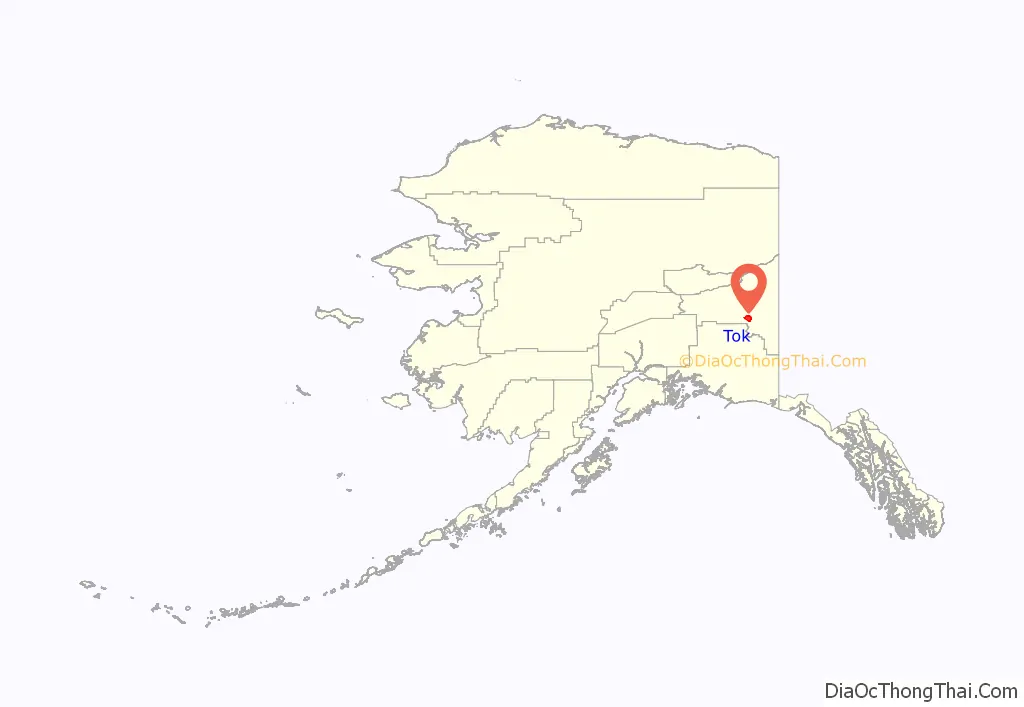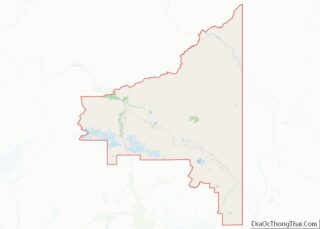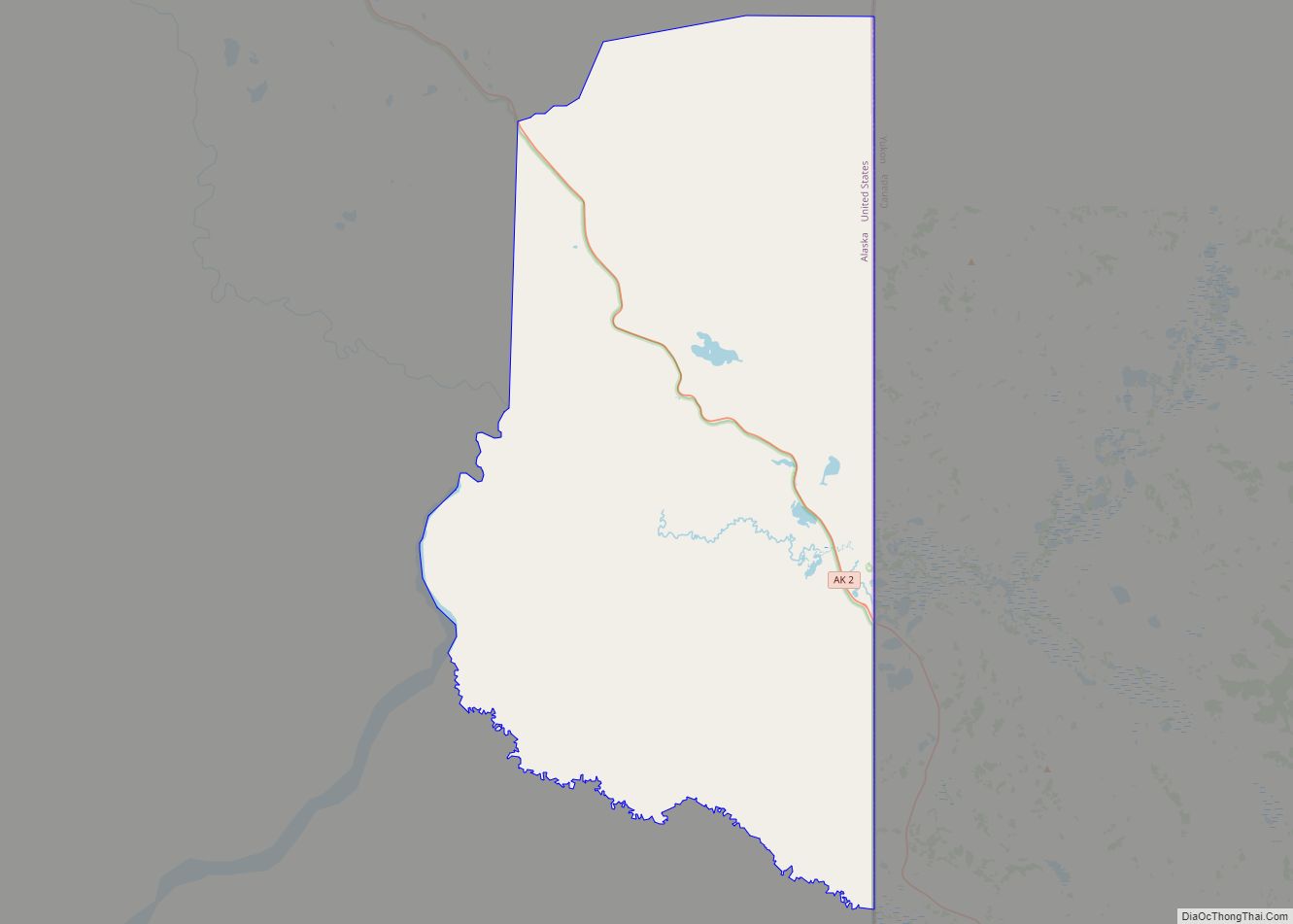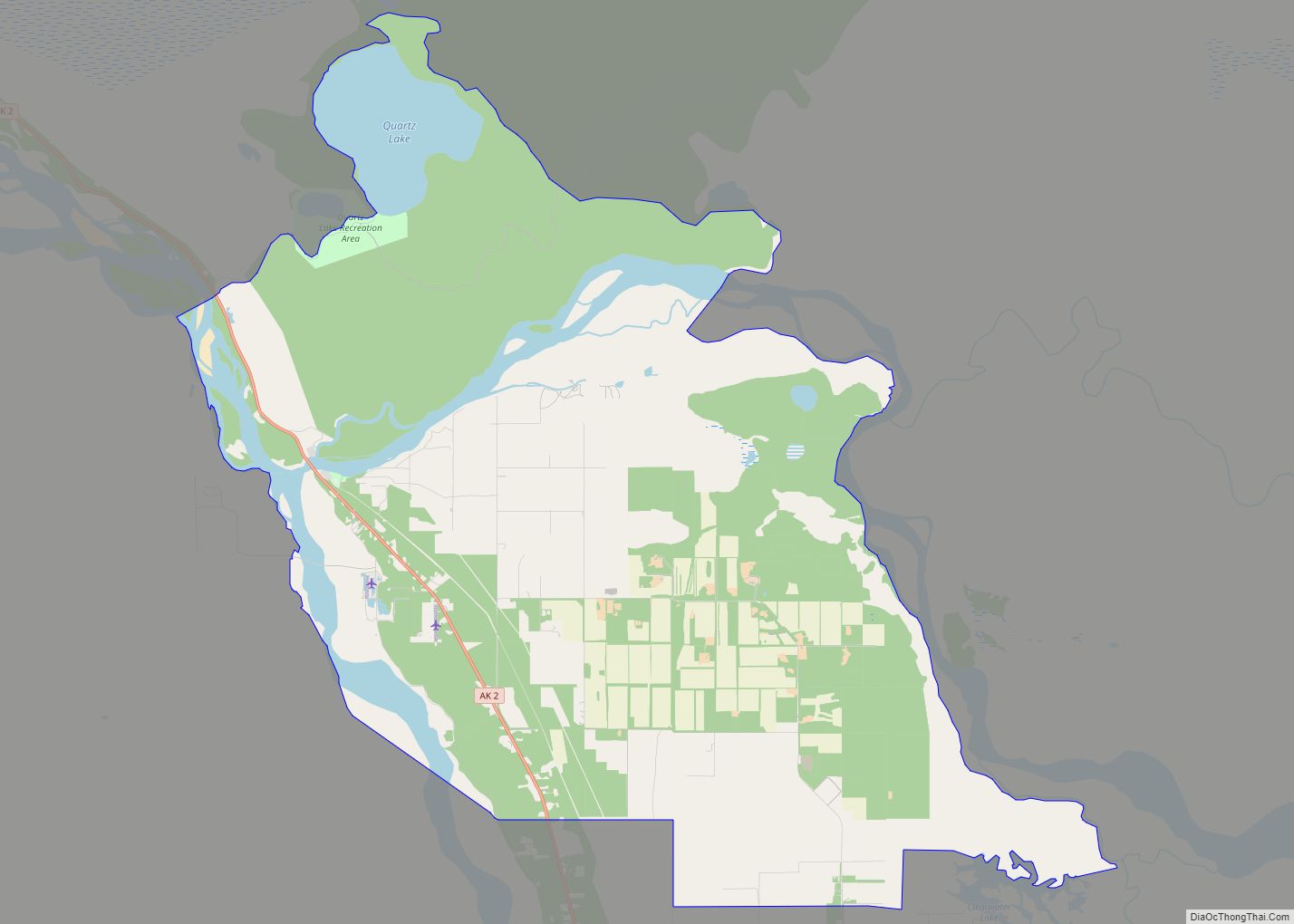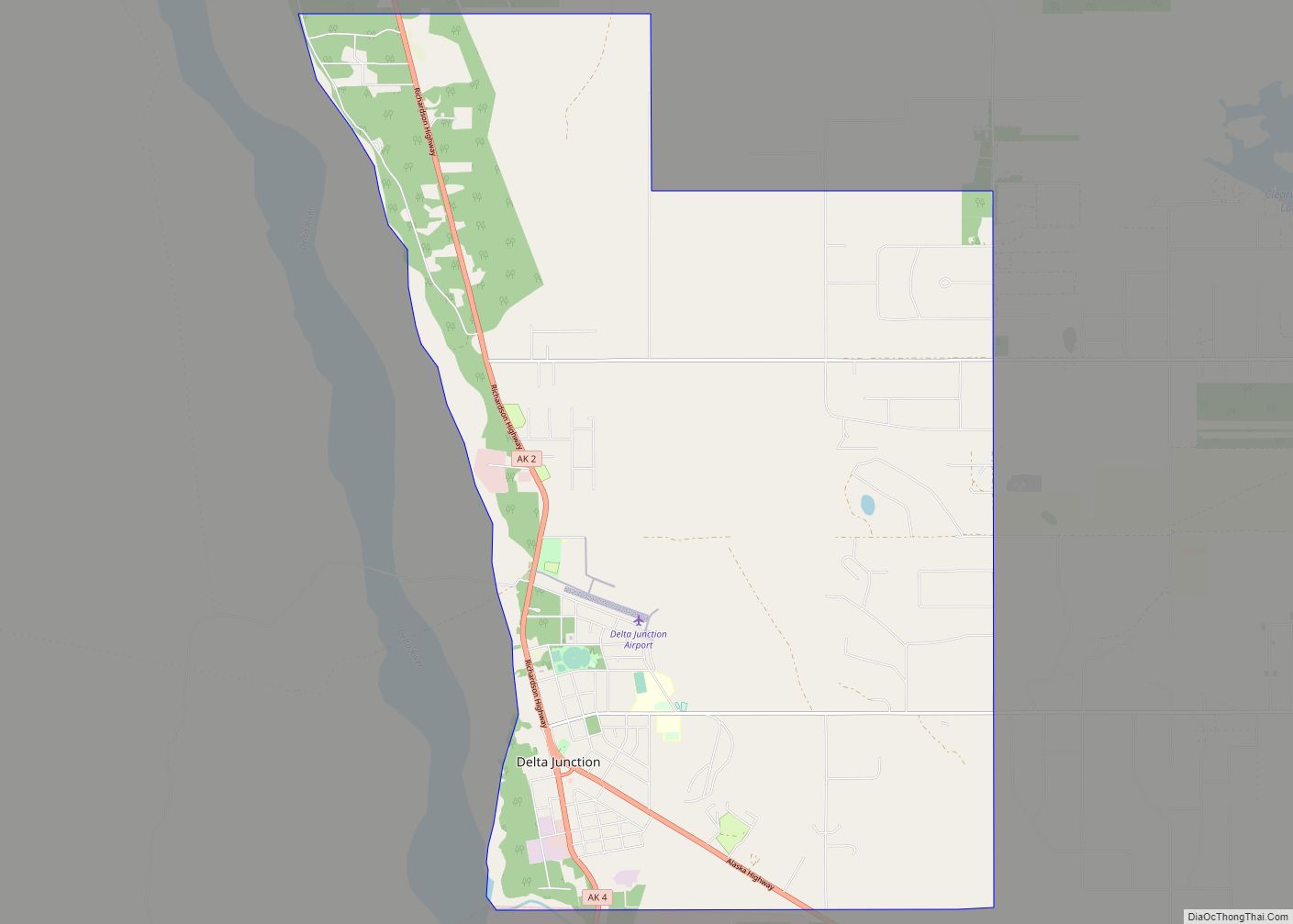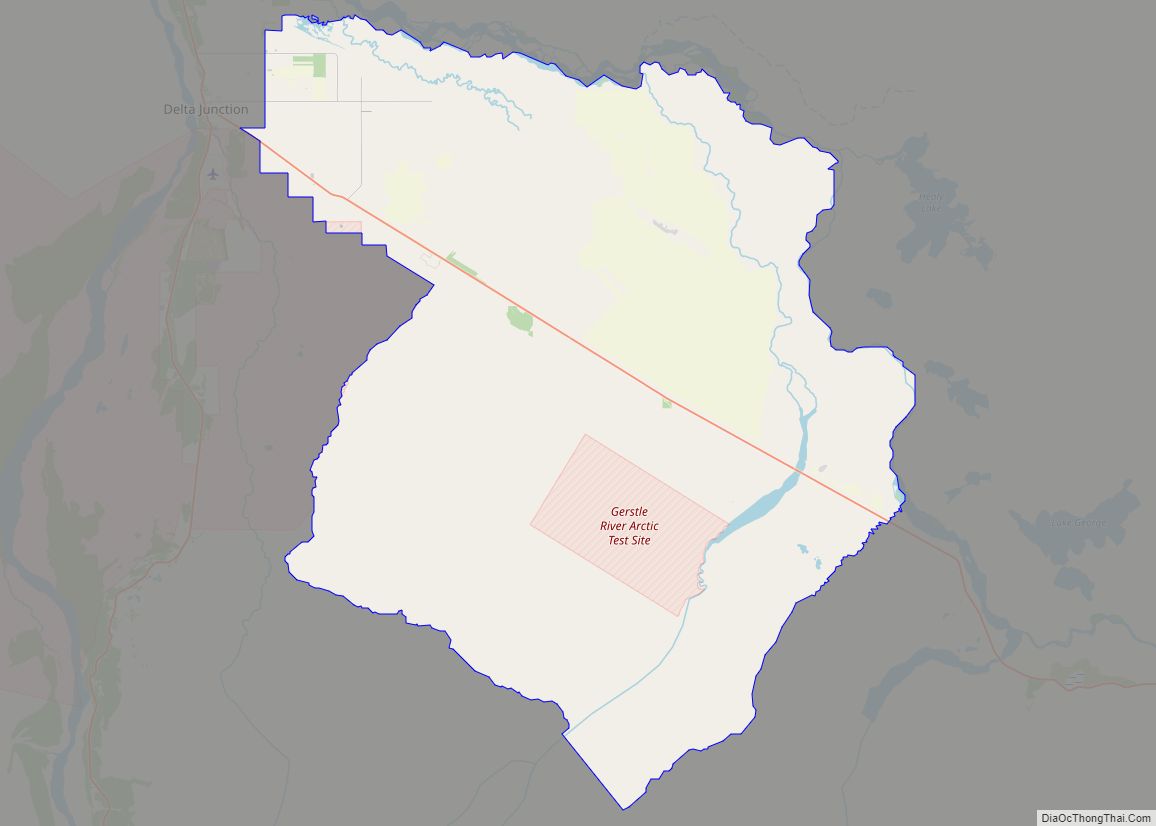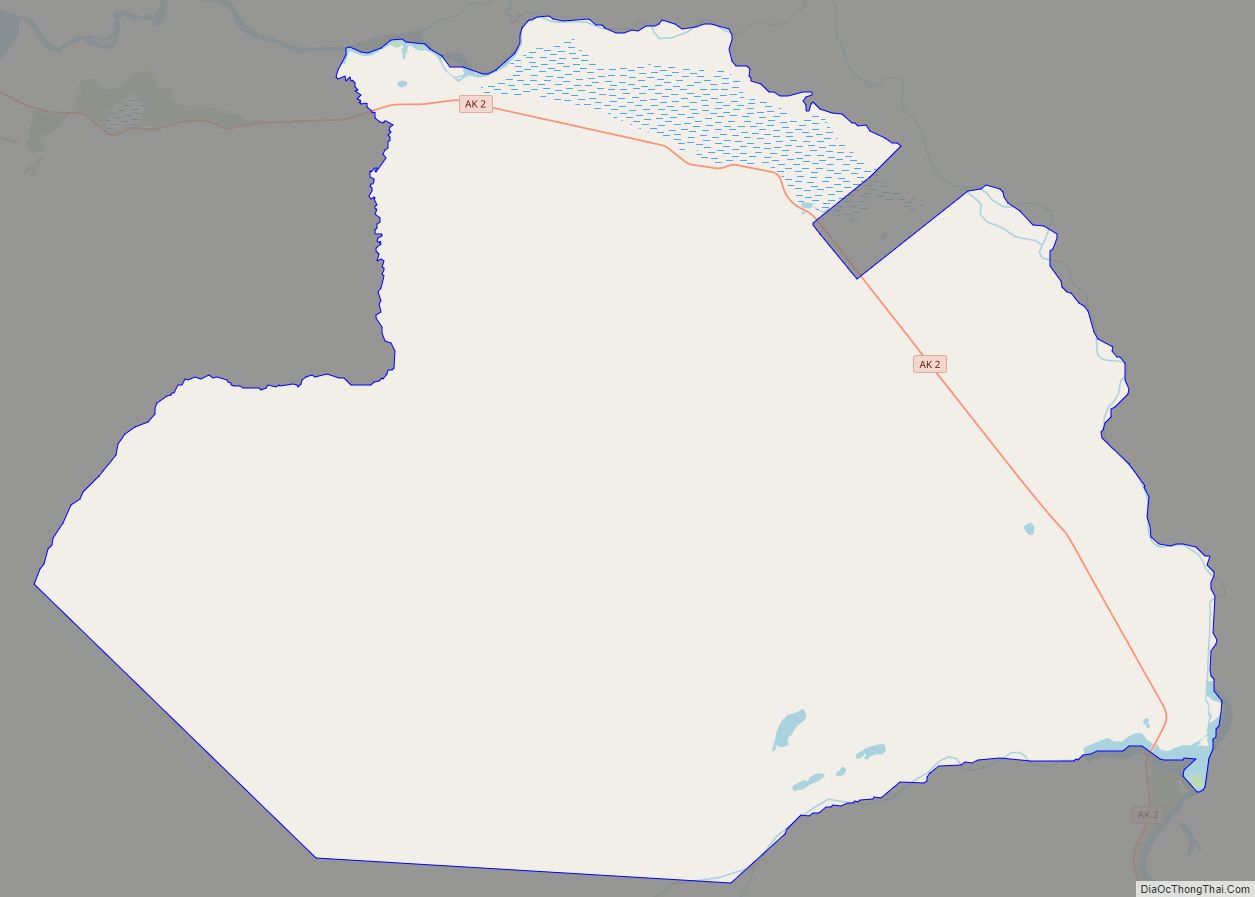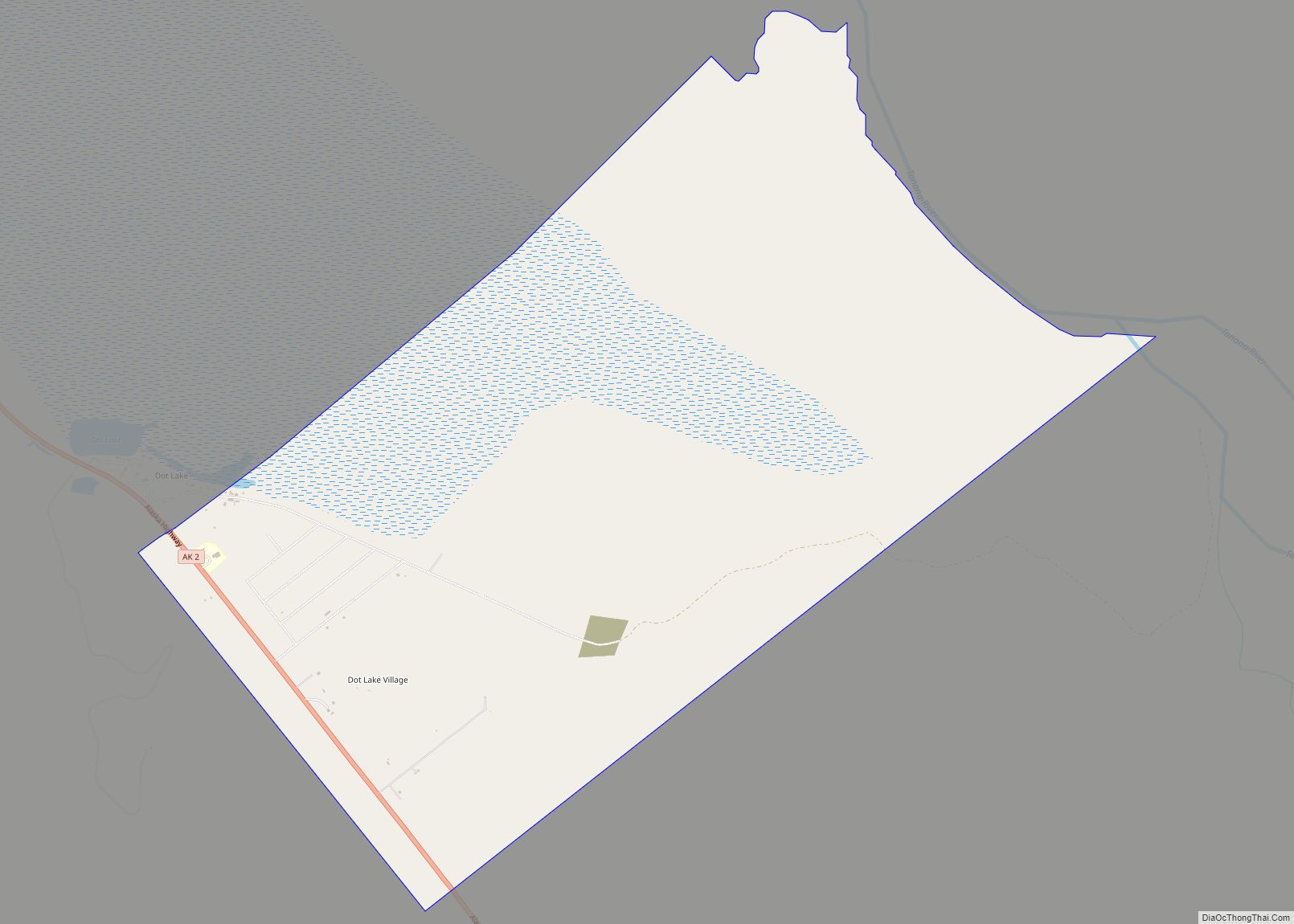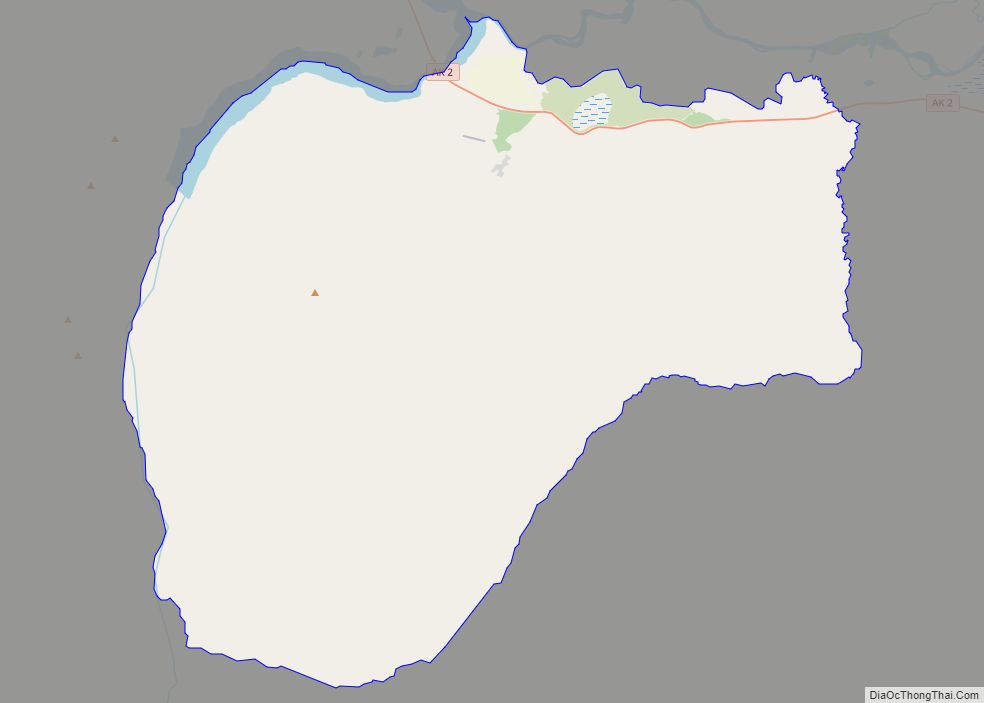Tok /ˈtoʊk/ is a census-designated place (CDP) in Southeast Fairbanks Census Area, Alaska, United States. The population was 1,243 at the 2020 census, slightly down from 1,258 in 2010.
| Name: | Tok CDP |
|---|---|
| LSAD Code: | 57 |
| LSAD Description: | CDP (suffix) |
| State: | Alaska |
| County: | Southeast Fairbanks Census Area |
| Elevation: | 1,620 ft (490 m) |
| Total Area: | 133.52 sq mi (345.82 km²) |
| Land Area: | 133.52 sq mi (345.82 km²) |
| Water Area: | 0.00 sq mi (0.00 km²) |
| Total Population: | 1,243 |
| Population Density: | 9.31/sq mi (3.59/km²) |
| ZIP code: | 99780 |
| Area code: | 907 |
| FIPS code: | 0277800 |
Online Interactive Map
Click on ![]() to view map in "full screen" mode.
to view map in "full screen" mode.
Tok location map. Where is Tok CDP?
History
There have been Athabascan settlements in the region of what is now Tok for many centuries.
The town at the present location of Tok began in 1942 as an Alaska Road Commission camp used for construction and maintenance of the Alaska Highway. So much money was spent in the camp’s construction and maintenance that it earned the nickname “Million Dollar Camp” from those working on the highway. In 1947 the first school opened, and in 1958 a larger school was built to accommodate the many newcomers. In 1995 a new school was opened to provide for the larger community. A U.S. Customs Office was located in Tok between 1947 and 1971, when it was moved to the Canada–US border.
Between 1954 and 1979, an 8-inch U.S. Army fuel pipeline operated from the port of Haines to Fairbanks, with a pump station in Tok.
In July 1990 Tok faced extinction when a lightning-caused forest fire jumped two rivers and the Alaska Highway, putting both residents and buildings in peril. The town was evacuated and even the efforts of over a thousand firefighters could not stop the fire. At the last minute a “miracle wind” (so labeled by Tok’s residents) came up, diverting the fire just short of the first building. The fire continued to burn the remainder of the summer, eventually burning more than 100,000 acres (400 km).
On January 10, 2009, Tok made headlines with an unconfirmed temperature reading of −80 °F (−62 °C).
Etymology
In one version, the name Tok is derived from the Athabascan word for “peaceful crossing.” The U.S. Geological Survey notes that the name “Tok River” was in use for the nearby river around 1901, and the Athabascan name of “Tokai” had been reported for the same river by Lt. Allen in 1887. In another version the name is derived from the English words “Tokyo camp”, although the major war benefit was supporting the transfer of airplanes to the Soviet Union. Another version claims the name was derived from the canine mascot for one of the Engineer units that built the highways. The name has no connection to the western Alaskan community of Newtok.
Another version comes from the proposed road construction of the highway to Richardson Highway. In the 1940s and 1950s, another highway, the Tok Cut-Off was constructed and connected Tok with the Richardson Highway at Glennallen. It was a “cut-off” because it allowed motor travelers from the lower United States to travel to Valdez and Anchorage in south-central Alaska without going further north to Delta Junction and then traveling south on the Richardson Highway. When originally being surveyed from the air, the map marking showed the “T” intersection, and the letters “OK” to confirm the location was suitable.
Tok Road Map
Tok city Satellite Map
Geography
Tok lies on a large, flat alluvial plain of the Tanana Valley between the Tanana River and the Alaska Range at an important junction of the Alaska Highway (Alaska Route 2) with the Glenn Highway (Alaska Route 1). According to the United States Census Bureau, the CDP has a total area of 132.3 square miles (343 km), all of it land.
Climate
Tok has a dry-winter continental subarctic climate (Köppen Dwc) with generally warm summers and severely cold winters. The weather station is at 1,620 feet or 494 metres above sea level.
See also
Map of Alaska State and its subdivision:- Aleutians East
- Aleutians West
- Anchorage
- Bethel
- Bristol Bay
- Denali
- Dillingham
- Fairbanks North Star
- Haines
- Juneau
- Kenai Peninsula
- Ketchikan Gateway
- Kodiak Island
- Lake and Peninsula
- Matanuska-Susitna
- Nome
- North Slope
- Northwest Arctic
- Prince of Wales-Outer Ketchi
- Sitka
- Skagway-Yakutat-Angoon
- Southeast Fairbanks
- Valdez-Cordova
- Wade Hampton
- Wrangell-Petersburg
- Yukon-Koyukuk
- Alabama
- Alaska
- Arizona
- Arkansas
- California
- Colorado
- Connecticut
- Delaware
- District of Columbia
- Florida
- Georgia
- Hawaii
- Idaho
- Illinois
- Indiana
- Iowa
- Kansas
- Kentucky
- Louisiana
- Maine
- Maryland
- Massachusetts
- Michigan
- Minnesota
- Mississippi
- Missouri
- Montana
- Nebraska
- Nevada
- New Hampshire
- New Jersey
- New Mexico
- New York
- North Carolina
- North Dakota
- Ohio
- Oklahoma
- Oregon
- Pennsylvania
- Rhode Island
- South Carolina
- South Dakota
- Tennessee
- Texas
- Utah
- Vermont
- Virginia
- Washington
- West Virginia
- Wisconsin
- Wyoming
